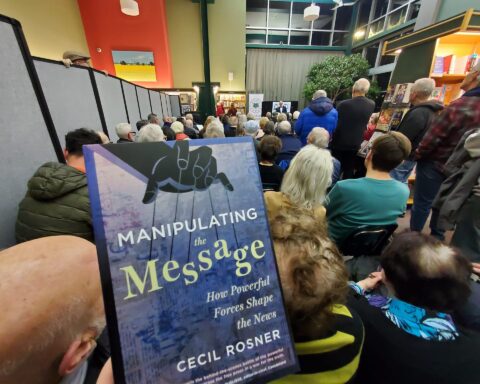Despite an increase in outreach efforts, some members of Brampton’s ethnic media still feel disconnected from the City.
“There is a broken link between the City of Brampton and ethnic media,” says Jagdish Grewal, the editor and publisher of the Canadian Punjabi Post, a daily newspaper that has been published in Brampton for the past 14 years.
This is despite a case study released late last year by Ryerson University’s April Lindgren titled “Municipal Communication Strategies and Ethnic Media: A Settlement Service in Disguise”, which suggests that the City of Brampton has made wide strides in reaching out to its ethnic communities.
Following a 2007 study that deemed the City of Brampton unresponsive to the needs of its immigrant community, Lindgren says the City expanded its ethnic media strategy to fund the translation of press releases, corporate communications materials, and pertinent advertising messages among other initiatives. To date, the City of Brampton’s website shows press releases translated from English into French, Portuguese, Punjabi and Urdu.
But Grewal says that the press releases and service updates in Punjabi, which he receives from the City via e-mail, are not effective.
“The translated news sent out is not helpful,” Grewal explains. “The City is spending a lot of money on translation, which is not worth it as I have to rewrite the releases. This does not make sense to me.”
“Leaders of ethnic media outlets are educated enough to translate English press releases into their own language.”
He adds: “Leaders of ethnic media outlets are educated enough to translate English press releases into their own language. My reporters are capable of writing news in English and Punjabi.”
If he could publish the translated press release as is, he would use it, but he points out, “Translation does not work like that.” He has to rewrite many of the press releases from the City into suitable news content for his paper.
A need for more authentic relationships
Grewal also mentions that in previous years, city council and the mayor had closer relationships with ethnic media outlets and held personal meetings with them, but now he does not find them as media friendly.
He recommends that the City build better relationships with ethnic media groups by keeping them updated on municipal issues through meetings and press conferences. This would lead to more coverage of city events, Grewal explains.
“Punjabi-speaking people are more aware about policy changes in the city because of coverage by ethnic media outlets.”
“Our readers are interested and want to know what’s happening in the city. Punjabi-speaking people are more aware about policy changes in the city because of coverage by ethnic media outlets.”
Rakesh Tiwari, editor of the Hindi Times newspaper, agrees with Grewal.
“I do not see any difference made by the City of Brampton,” says Tiwari, who has been with the newspaper for the past 12 years. “The local library and hospital approach me and send me messages in English,” he says, but adds that the City does not send him updates frequently.
“They need to connect better with the ethnic media,” asserts Tiwari, who also runs Atna Radio, a show on 101.3FM where local, national and political topics are discussed in Hindi.
He adds that if the City would keep in better touch with him, he could cover more city-related news and talk to the appropriate people.
“There is no support from them,” he says.
“In terms of bringing the community together, the City of Brampton has done a lot.”
Some positive change happening: residents
While the ethnic media may not be benefiting from the City of Brampton’s efforts, area residents do see improvements being made to reach the ethnic community.
Rabab Kassam, a pharmacist who has been living in Brampton for four years since migrating from Kenya to Canada, finds that the City’s money has been well spent on ethnic outreach.
“In terms of bringing the community together, the City of Brampton has done a lot,” she says, “They are encouraging people from different cultures to adapt to a better life here.”
She mentions that the library near her house offers English language classes for newcomers as well as computer classes in Punjabi since Brampton has a large population of Punjabis from India.
She has also noticed information posted on bus stops and inside buses in different languages with messages related to housing.
“[The City of Brampton] is making a good investment so elders can participate in society,” says Kassam. “It’s a different language for elders, so if they can learn computers in their language then at least they can learn how to do banking from their homes and not have to go out in the winter.”
June Dickenson, manager of marketing and communications at the Brampton Public Library, says that her branch provides a lot of free multicultural services to the public.
These include English conversation clubs, a Punjabi writers’ club and a Hindi writers’ guild. In addition, they also have computer classes for Punjabi, Hindi and Urdu speakers. Community members can register for these opportunities through the City of Brampton.
“Our computer classes are extremely popular,” says Dickenson. “They fill up quickly. There is more demand than space.”
Editor’s Note: Efforts were made to receive comment from the City of Brampton, but response was not provided by deadline.
Journalist Priya Ramanujam mentored the author of this article through New Canadian Media’s mentoring program.
Sukaina Jaffer holds a Master’s degree in International Journalism. As a freelance journalist, she has written for New Canadian Media, The Guardian, Guardian Unlimited and The Independent.





